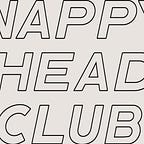I Flew Across the Globe to Finally Blend in
Written by Indigo Goodson
I often stand out when I travel in U.S. American cities, not to mention when I go abroad. As a relatively medium-brown skin Black woman with naturally nappy hair, often in a fluffy afro, I can be seen as an anomaly. I have an aesthetic that others have categorized as “Afrocentric”, “radical”, “eccentric”, etc., though for my upbringing it is simply normal, expected, and encouraged. My mother has had natural hair my whole life and my father, long freeform dreadlocks for most of my childhood.
I have been asked some version of this question my entire life: “why do you wear your hair natural?” It has been asked by fellow students in California classrooms, by my cousin in Delaware, and so many times during my year studying abroad in Accra, Ghana. It is exhausting having my hair policed by a Eurocentric beauty standard drenched in anti-Blackness. When the question is coming from other Black folks who share my kinky hair texture, it’s telling to the degree in which we, as Black folks, at times critique Black African features negatively, as noted in this article on misogynoir. A big part of why and where I travel is to converse with other Black folks on the topics of race, hair texture, and colorism. With this in mind, I decided to travel to Papua New Guinea (PNG).
I am not in a position to attempt to provide an in-depth synopsis on racial identity in PNG but I can share a few points that are relevant to understanding my experience. Acknowledging that nothing is objective, and that our perspective is impacted by positionality and socialization, I would still racially identify the majority of PNG as ‘Black’. Melanesian is essentially a term that refers to indigiounous Black Pacific Islanders. Many people in the Western world may associate Melanesians with Fijians, as the country is more well-known in the West, yet PNG’s population would mostly identify as Melanesians as well and has about 7 times the population of Fiji. We have to take into consideration that though real, race is a construct, and it’s classifications will shift based on location. Some Papuans self-identify as ‘Black’ and some do not. There are many nuances as to how folks self-identify and why. For me, as a Black woman with an afro, the level of comfort I felt- my exhale of relief- upon arrival to Port Moresby was well-worth the journey.
I flew 26 hours across the world to blend in. No one asked me why I wore my naturally nappy hair in an afro or why I haven’t straightened it or if I would straighten it. I was surrounded by people with brown skin and kinky/nappy, curly, and wavy hair textures. In my whole life as a Black woman with natural hair, I have never felt so reaffirmed by a place where these two aspects of my phenotype were so commonplace that it wasn’t a conversation piece, it wasn’t to be fawned over or looked upon with disgust. It was refreshing. I had to stop myself from looking so wide-eyed and act like “I’ve been here before”, like I’ve seen a shopping mall full of Black folks with brown afros. Full of people with hair that looked like mine.
One reason I went to PNG was to discuss natural hair. Not only do most Papuans have afros, but the default imagery on infographics, advertisements and signs is a person with relatively medium-brown skin and a short black afro. I have travelled to Ghana, Togo, Sudan, Ivory Coast, Benin, as well as countries in the Caribbean, Europe, and Asia, and this has never been the case. I found myself snapping pictures of the images, explaining to people that I’ve never seen representation that reflected me to that magnitude. Though I wanted to talk about natural hair with everyone, I ended up not bringing it up as much, for once, because I did not want to be that person projecting that there is something unusual about wearing your hair in a natural afro. I didn’t want to be another foreigner, fixated on a cultural norm in PNG, regardless of if I shared this aspect of my positionality with most Papuans.
Decades of racist travel policies perpetuate an inequitable cultural exchange between countries in the Global North and Global South. This results in citizens of majority White countries being at liberty to explore and or exploit the world. Having USA passport privilege means that I was able to travel to PNG with relative ease, whereas Papuans are not able to travel to the USA with that same ease. I am grateful and privileged to have been able to travel to Papua New Guinea and to have received an invitation from my grad school classmate and friend, Mary Fairio. Mary’s ‘team’ of family, friends, and colleagues showed me so much kindness and hospitality and had discussions with me about hair, politics, race, food, family, amongst other things. When traveling through my Flatbush, Brooklyn neighborhood with my hair in an afro and hearing people making 70’s references to my hairstyle, callin me “soul sistah” or having others reach out to touch my hair, or ask me “have you thought about straightening your hair?”, my mind goes back to PNG, and those feelings of normalcy and gratitude to not have to feel like an anomaly for a week in the Pacific Islands.
About the Writer:
Indigo Goodson is a community educator and writer based in New York
